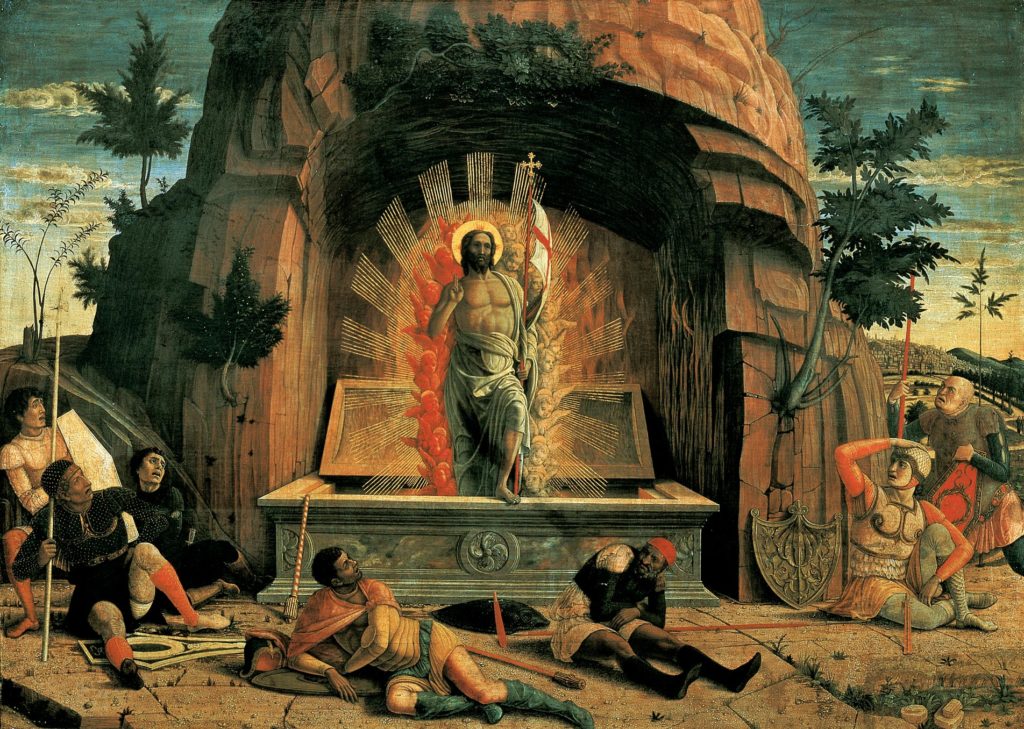
This Easter (of 2011), I will be in England; the first Easter I have spent in this land in long years. It follows long years of celebrating this Feast of Feasts in countries of Catholic heritage: Ireland, Spain, France. (More precisely, one should say countries that never turned to Protestantism; for, of course, England, has, too, centuries of Catholic heritage).
Easter— it is the time of Resurrection. And this Easter in England, something historic is happening.
This is so much the case that one is forced to wonder whether future generations will ask whether this particular Easter marked a moment of resurrection for English Christianity.
I am referring of course to the new Anglican Ordinariate. This Easter, hundreds of Anglicans will depart from the Church of England and be confirmed en masse into the Catholic Church.
The centuries since Henry VIII razed the monasteries to the ground and suppressed Catholicism have seen numerous developments. There have been many notable, even spectacular individual conversions – from Bl. John Henry Newman to Graham Greene – but this Easter mass defection from the Church of England is, of course, unprecedented.
Now I write for this website as an English, former Anglican, who naturally also converted during Easter.
What a Resurrection that Easter conversion has been in my own life!
All my thinking is shaped by the joy of this Resurrection. Before I was baptised an Anglican in 1998, I had been a fierce advocate of the New Age movement in Britain. I had lived at the Findhorn Community in Scotland.
For many people, Findhorn is something of a world centre for the New Age. Indeed the American lawyer and Protestant Christian activist Constance Cumbey has called Findhorn the “Vatican City” of the New Age movement. And I left Findhorn for England to vigourously promote New Age spirituality.
By the time I became baptised as an Anglican, I had begun – only begun – to feel what was missing in New Age-ism.
But it took this Resurrection of Easter to make me realise far more acutely.
At Easter 2000, I stepped into a different universe, when I was confirmed a Catholic.
And from that different universe, how different England began to look to me.

Protestantism, Our Lady and England
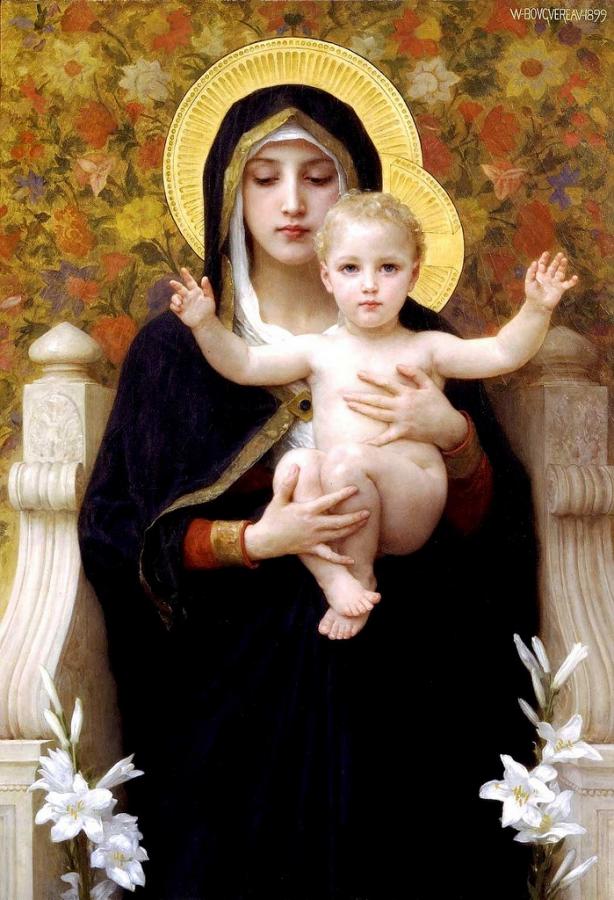
Only then from the vantage point of this different universe, did I begin to see – and ever more vividly – how profoundly conditioned English society had been by the Reformation. Only then did I consider the significance of an entire society losing devotion to Our Lady.
Now at this site, I have sometimes quoted these stark, uncompromising words of Valentin Tomberg:
The impoverishment of humanity caused by Protestantism: without the Mother, the Word is not ensouled, and consequently humanity is deprived of the effect of the Universal Remedy.
Now Valentin Tomberg was also a convert, who – though not English – spent nearly his entire post-conversion life living in England.
Things often appear very differently to the Catholic convert.
It is not “politically correct” to write of the impoverishment of humanity caused by Protestantism. And if the ordinary Catholic has even a shred of humility, he must acknowledge and honour great Protestant Christians, who have far more virtue and integrity than he does.
Thus I do not wish to dishonour Protestants, who I know may live much more virtuous lives than I do.
But having felt the power of the Catholic Mystery working in my own soul, having lived in Catholic countries, I cannot help but reflect on what it means for a culture as a whole to be steeped in this Catholic Mystery.
Foreword for Monarchy by Roger Buck
Yes – Valentin Tomberg wrote these words during the quarter of a century he lived in England as a Catholic convert. He would have written them from the experience of English society, stripped of devotion to the Mother of God – a society where devotion to the Mother of God was, in fact, suppressed for centuries …
Returning to England, after years abroad, I have felt even more acutely aware that such weighty matters as crushing the monasteries or wiping out Marian devotion are not without far-reaching effects on a nation!
Consciousness has been heightened by the time experiencing first-hand the markedly different Catholic countries I had lived in.
Last autumn, I exited France and set foot on English soil for the first time in years.
Even the architecture felt Protestant.
The French and Spanish buildings had been much more curvilinear. Well into the twentieth century, French and Spanish architecture owed a clear debt to the Baroque. All those rounded, baroque lines in the churches built in Tridentine France and Spain had spilled out into the towns and cities.
Coming back into England, was to be powerfully hit by how rectilinear the buildings were by comparison. Even the Georgian, but particularly Victorian buildings had a utilitarian, rectilinear repetitiveness that distinctly lacked the kind of flourish, beauty and imagination of their French and Spanish counterparts from the same era.
Because England was Protestant, the baroque style never really arrived on these shores. Having experienced Latin Catholic culture, it is impossible for me not to associate England with a certain pragmatic austerity, even severity that came with the Reformation.
Valentin Tomberg uses the word “ensouled”. Coming back to this island, this quality leapt out at one: a certain impoverishment, a lack of soul – the dominance of the prosaic.
There is that old saw:”England is a nation of shopkeepers”. It has been hard not to think of this old saw. It has been hard but to see a culture of the pragmatic, prosaic, “pounds and pence”.
This is not to say of course that there is not great English art, poetry and more! Still, this particular feature of an often dry, utilitarian Englishness is likely to strike numerous people in the Catholic countries – as many French and Spaniards will confide to you, if you care to listen to them with a sympathetic ear.
The famous British “stiff upper lip” is related to the same complex, I imagine. This is not, I think, a culture that can so easily weep in the loving embrace of the Mother. It is a culture that no longer knows such a fundamental attitude as expressed in the fundamental Catholic prayer Salve Regina:
Hail, holy Queen, Mother of Mercy,
our life, our sweetness and our hope.
To thee do we cry, poor banished children of Eve;
to thee do we send up our sighs,
mourning and weeping in this vale of tears.Turn then, most gracious advocate,
thine eyes of mercy toward us …
In reflecting on the English nation, I have also not been able but to help myself pondering the fact that capitalism arose most powerfully in England; her economic prowess did so much to create and sustain the British Empire.
The atheist, marxist (and certainly not Catholic!) Max Weber had argued that Protestantism led to Capitalism. This of course is the famous thrust of his groundbreaking sociological work: The Protestant Ethic and the Spirit of Capitalism.

On Protestant Decline and the New Age
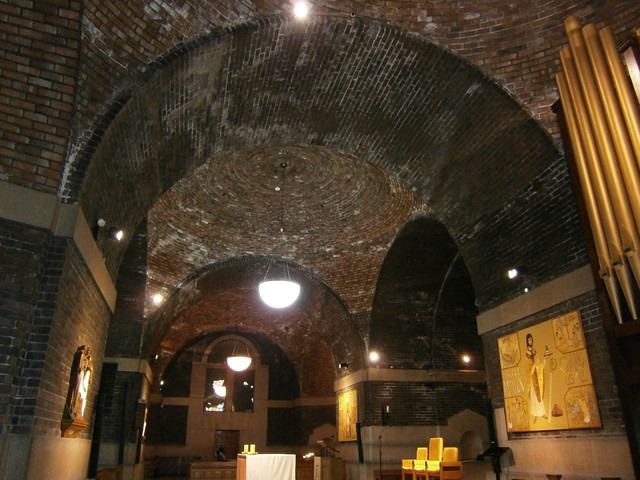
Here I am, once more, in a society dominated by Protestantism for centuries.
Like other European Protestant countries including those of Scandinavia and elsewhere in Northern Europe, identification with Christianity is in rapid decline here. Generally speaking, it is a far more rapid descent than in the European Catholic countries.
But here is an odd thing.
This Easter I shall go to the Holy Mass in Liverpool.
In Liverpool and elsewhere in the Northwest of England, identification with Christianity has not declined as steeply as elsewhere.
The results of the 2001 census in Britain were clear: it was in Northwest England that respondents to the census were most likely to identify themselves as “Christian” – often by a very significant margin.
The reason is not hard to guess. Across Europe the former Protestant countries are – again – clearly the most secularised and de-Christianised. This obviously includes the United Kingdom.
But the situation in Liverpool and Northwest England is different from the rest of this country. For here, unlike anywhere else in England, masses of the Irish crossed the Irish sea – and stayed.
These Irish Catholics joined a long existing recusant tradition, which had existed in Lancashire in defiance of the waves of Protestant suppression.
As a result of the native recusant tradition and Irish immigration, northwest England has a markedly different quality.
In Liverpool, I have been stuck by the Catholic infrastructure that still exists there – truly massive Catholic churches, schools as well as (dying) convents and monasteries. Here like nowhere else I know in England, I am reminded of Ireland, of France …
Many parts of the Merseyside region are (nominally) fifty per cent Catholic or more. (The average for England as a whole – again nominal – is around ten per cent. And given that the Northwest is so high, this obviously means that other parts of the country have correspondingly less than this average).
The Northwest England pattern confirms that which can be seen elsewhere. The more Protestant areas in Europe are less likely to identify themselves as “Christian”.
The 2001 census in Britain is but one further indication that Protestantism is more likely to take on de-Christianised identity. And with that decay, I would argue it is more likely to fall into secularism – and capitalism – than Catholicism. I also believe that Protestant culture tends to turn into New Age-ism much more readily.
New Age-ism is of course, akin to Protestantism in extremis. In Protestantism, most if not all, the former structures of authority are overturned in favour of the individual’s relationship with God. New Age-ism simply takes the process one step further. Now it is asserted one has no need for any such structures at all …

Thus in Protestantism, it was asserted that one did not need priests or a hierarchy for the transmission of Grace. And that too is certainly what I felt when I was a New Ager. “I don’t need anything! I don’t need a tradition or a church! I can do it all by myself!” Such was the arrogance of my youth.
Now all my years in the New Age serve to confirm the following for me: Alongside places like California, Britain is something like the world capital of New Age-ism. And much, very much of this culture spreads out from Findhorn in the north of this island.
But those who have lived in Catholic countries will readily see that New Age-ism does not take hold there in anyway like the same way it does in the secularised countries of Protestant heritage. (For anyone interested in this, I have written more to back up this notion here).
There is I think a spiritual hunger that leads to New Age-ism. My experience of the Catholic countries suggests to me that that hunger does not exist there in the same way.
Indeed, born and raised as I was in Anglo-Saxon Protestant culture, I had not the slightest idea of what the Catholic Sacraments were. Had I really known, I do not think I would have ever turned to New Age-ism.
Here is another reason why I identify New Age-ism as the outcome of the Reformation.
A clear trajectory can be seen: Protestantism leads to secularism (and arguably capitalism) and from there to New Age-ism. Those who know Catholic culture will realise it is not quite the same in those countries, which are possessed of its heritage.
But let me return from society as a whole, to something very personal. At Easter 2000, as I said, I entered the Catholic Church.
And I began to feel GRACES that I had never felt before.
Dear Lector, for me it is absolutely clear: through my Easter entry into the Catholic Church, I participated in a process of Resurrection.
In my soul, I feel a Resurrection in ways that I could never have found, had I remained in either English New Age-ism or English Protestantism.
Allow me to be frank: the Catholic Church clearly claims that a unique grace pours through the Sacraments of the Church – Catholic and Eastern Orthodox.
This is my personal experience. And although I explored different spiritualities for decades, I cannot imagine how I could have come to the same Grace without the Church.
As a New Ager, even as an Anglican, I would be deprived today of more riches than I can possibly express in words.
This is my personal experience as a convert. It is the experience of many converts, including one imagines that of Valentin Tomberg. For Tomberg had been a Protestant. He had been a Lutheran and then participated in the very “Protestant” milieu of Anthroposophy.
But looking back on all of this from the vantage point of his conversion, he could write that it had led to the impoverishment of humanity.
Even if, no doubt there are – once more – countless great and noble individual Protestants, Reformed Christianity as a cultural force, has clearly lead in certain directions …

A Historic Return to Catholic Tradition
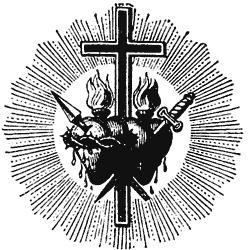
And now this Easter, we face something historic.
A portion of the Church of England will re-enter communion with Rome, after all these centuries.
That portion is admittedly small – not more than a thousand souls. Still, quantity is not everything and in a qualitative sense, it is fair to say nothing like this has ever happened before.
Yes I type these words, as we approach Easter in England in the literal sense.
Today is Maundy Thursday. It is literal fact that Easter is just days away. (It also seems for April an unusually hot day here in Britain, leading my mind to ponder the connexion of all of the above, including capitalism with global warming).
But my title is not meant to simply literal. Rather by the words Easter in England, I wish to raise a more profound question:
Namely this – is it possible that future generations will see this Easter in England in a far deeper way: as a moment of resurrection for English Christianity?
That is to say, a profound re-orientation of an English Christian tradition that has succumbed all too easily first to secularism and now to New Age-ism …
Let us pray that it is so!
Note: More about Catholicism in England can be found here.
Foreword for Monarchy by Roger Buck
Buying Books at Amazon Through These Links Gives Us a Commission. This Supports Our Apostolate. Thank You if You Can Help Us Like This!





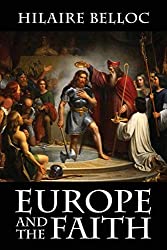
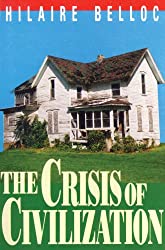
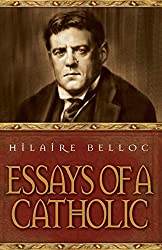
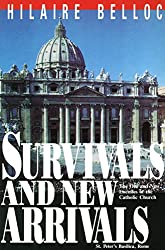
Comments
comments are currently closed
3 responses to “Easter in England: The Anglican Ordinariate and Catholic Tradition”
[…] as I have already suggested here – there is statistical evidence that even in this remnant microculture of “Catholic […]
I came across your website by accident (?) and would like to say that I discovered ‘Meditations’ several years ago and found it a profound experience. At the time it was not widely known who the author was and I wrote to the publisher (Element Books at the time) who supplied me with info. I said to them that the people who ought to read it wouldn’t, ‘it’s occult, isn’t it ?’
Still you and I did and we are travelling along a similar road. I have been an Anglican priest for over 20 years but am now in the process of moving to the RC church where what I have believed for 20-odd years is still to be found, though my experience as yet leaves me missing the dignity and beauty of good Anglican worship. Unfortunately I am not able to join the Ordinariate due to geography.
Dear Fr Ian Kay
I feel honoured – actually thrilled – to have received your comment.
Different things move in my heart as I read your words.
Sorrow when I hear you write: “though my experience as yet leaves me missing the dignity and beauty of good Anglican worship.”
Catholic liturgy today is in a state of terrible, terrible tragedy. I suspect none of us really know the full depth of that tragedy. The knock-on effects I have no doubt contribute mightily to the desacralisation of the world.
Thus every priest who understands this is most needed.
I pray that as you move into the Catholic Church, you can find ways to bring with you, all that you have learnt regarding ‘the dignity and beauty of good Anglican worship’. We have much to learn, alas!
More emotions regarding Protestantism. I can sound harsh at this site, as perhaps I do invoking Tomberg’s startling words above:
“The impoverishment of humanity caused by Protestantism: without the Mother the Word is not ensouled, and consequently humanity is deprived of the effect of the Universal Remedy.”
I find it hard to get the balance right. I want to honour with all my heart, all that Anglicans and Protestants have done and still do to keep Christianity alive in the West.
At the same time, I feel the poignancy behind your words which I’m adding italics to
‘to the RC church where what I have believed for 20-odd years is still to be found.’
From my time as an Anglican, as well being taught at an Anglican college, I realise all too poignantly why you write: ‘is still to be found.’
The conviction that forms in me over years is that Christianity is in real danger of death, without the full sevenfold Sacramental Mystery and indeed Our Lady.
For that reason, I rejoice in this historic movement of Anglicans to the Catholic Church.
Finally I am grateful indeed for your comments regarding Meditations on the Tarot.
Concerned as I am about materialism, desacralisation, New Age neo-paganism and the danger to Christianity, I believe that Meditations on the Tarot has a very important task to play in the 21st Century.
Your testimony here helps that task.
Thank you deeply, Father.